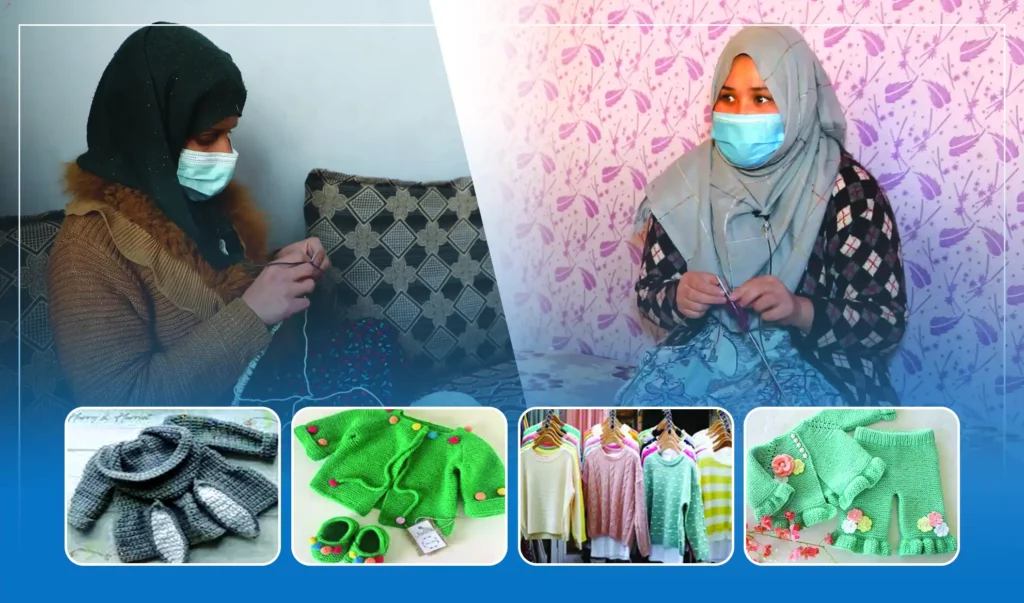KABUL (Pajhwok): A blind woman, who plays a role in earning a living for her family, wants the government to arrange weaving courses for them.
As she wants all blind women to learn the basics of weaving, the courageous lady said did not allow her blindness to cast a shadow on her life or rely on others,
Nargis, 24, wants all women with vision issues to become self-sufficient and take charge of their lives.
Hailing from the Taimani neighbourhood of Kabul, she claims living like a normal individual, without being reliant on others.
“I have never thought life is hard. In all affairs of my life, I don’t lack anything. I do all chores myself,” maintained.
As a newly-wed woman to a blind man, Nargis is happy with her life and struggles consistently to make it more comfortable.
Her husband runs a small shop near their house and sells cigarettes, sodas, biscuits and other items. He contributes to his family’s income in this way.
In an exclusive interview with Pajhwok Afghan News, Nargis said she was suffering from congenital blindness.
After graduating from high school, she qualified the entrance test to the law department. Due to economic problems, however, she was unable to continue her university education.
But the inability to continue her studies has not deterred the young woman, who stands firm and plays an effective role in her family’s prosperity.
She supports her family through weaving different things, a skill she learnt at school, at her home when she has no chores.
She weaves jackets, scarves, gloves, table placements and other items. Nargis said: “I sell the items I weave through the Blind Union at exhibitions.”
While speaking to Pajhwok, she was also busy knitting a jacket: “I make jackets, children’s clothes, caps and scarves. No one helps me at weaving. What I have learnt from my teacher is recorded in my mind.
“I encounter no problems. It is right but I feel things through touch. I understand how to weave and how to create designs on various items.”
She weaves a jacket, a scarf or any other item in a week or two. She complains about declining sales at exhibitions, where she previously earned a lot.
Eager to train the blind, Nargis says she can teach other individuals with disabilities. Suggesting the weaving profession for the special people, she does not have the resources to arrange such a course.
“I wanted to arrange a course where I can teach others the fundamentals of weaving, but I have no facilities. I ask welfare organisations if they can help me arrange such a course.”
In her massage to the masses, Nargis says she wants the people to be kind to the blind and not to insult them.
She has urged the government to provide more facilities for the blind.
Farzana, 27 is another woman with the same disability as Nargis. Farzana also plays a key role in the income of her family.
A mother of three, Farzana says: “I have been living together for eight years with husband and his sister. She is also helping me in running family affairs.”
Farzana learnt weaving skills at a school for the blind. In leisure time, weaves “I know how to weave jackets and trousers and sell my handcrafts, I have placed some pairs at a permanent exhibition. But they are yet to be sold.”
The Blind Union allocated the sightless individuals special tents at exhibitions, where they display their products, she said.
Farzana also complained of financial issues, saying: “I have been struggling with economic problems. I’m blind and so is my husband.”
She urged the government and other welfare institutions to help the blind people, who were faced with a whole host of economic problems.
aw/mud








GET IN TOUCH
NEWSLETTER
SUGGEST A STORY
PAJHWOK MOBILE APP